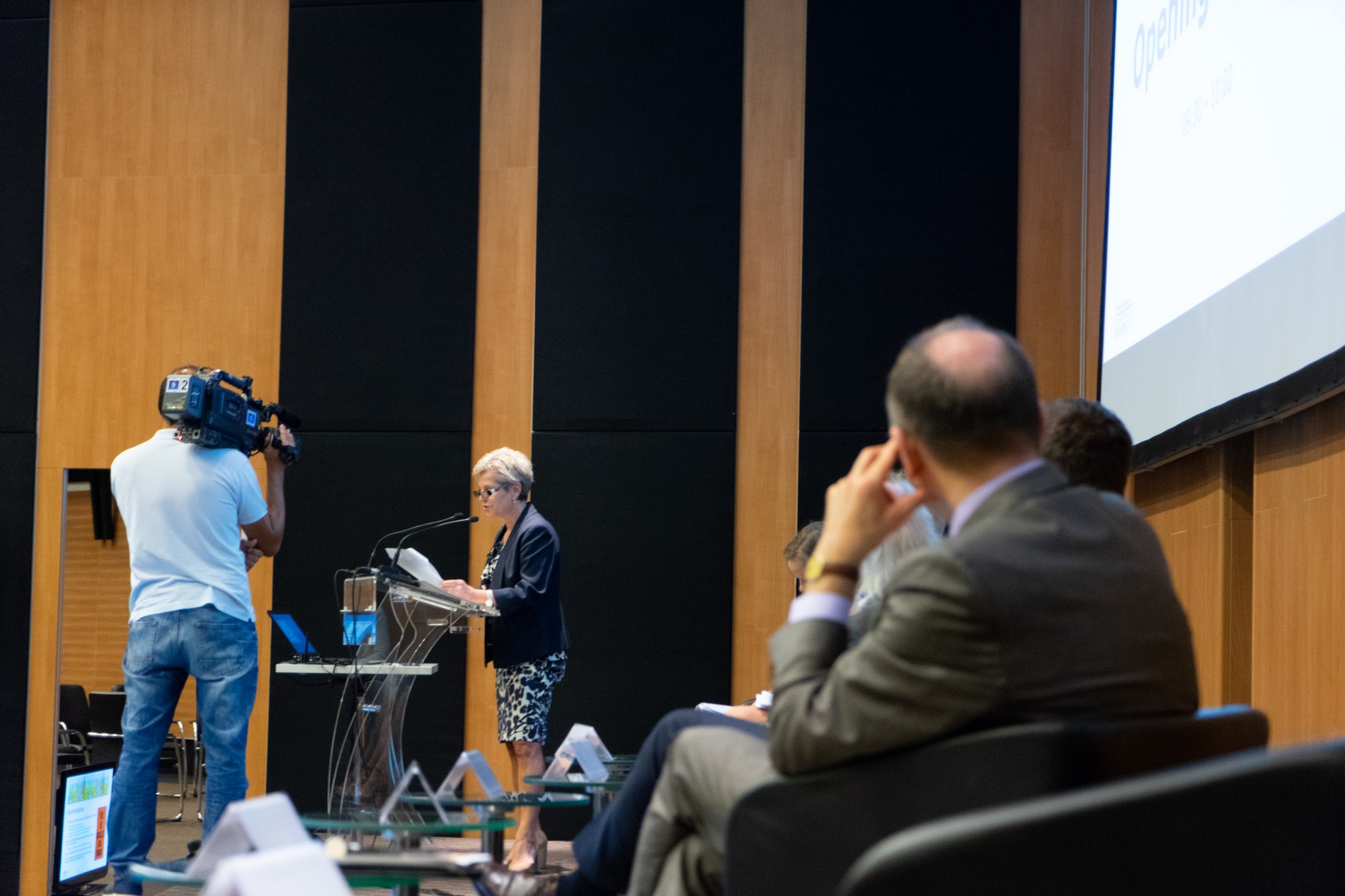Press Releases

14-05-2018 14:33
Address by the Minister of Transport, Mrs Vassiliki Anastassiadou, on the occasion of the European Conference on Sustainable Urban Mobility Plans
We are very honoured to be hosting the 5th edition of the European Conference on Sustainable Urban Mobility Plans (SUMPs) here in Nicosia, Cyprus and I, warmly welcome you all to the south-eastern corner of Europe. This annual event has come to be recognised as the leading forum for all those involved in putting the SUMP concept into practice, from policy makers to academics to mobility practitioners.
What better platform can one find to network, debate key issues and exchange ideas on sustainable urban mobility planning. In line with the European Commission having dedicated the year of 2018 to the promotion of multimodality, this year’s conference focuses on the integration of transport modes and combined mobility solutions for passengers and freight in cities and regions.
Cities today are reorienting their transportation priorities towards people, instead of cars and urban planning is ever more focused on the consideration of quality-of-life, by offering a variety of alternative modes of travel, improving walkability in the city centres and developing excellent public transport services. Yet, continued reductions in car usage require true multi-modalism; it is not as simple as removing cars from the network or expecting that most car trips can be substituted with public transport trips. People need to have an array of options to choose from, which requires strategic and methodical planning.
What we are in fact striving to achieve is to roll back the years and do what we were used in doing one or two generations ago. I remember when I was a kid that I was dreaming of acquiring my first adult size bicycle, so that I would be able to go to school on my own. Later when this became a reality, I would relish my independence and my freedom to roam about as I pleased. In fact, Cyprus, a few decades ago boasted the largest per capita number of bicycles in Europe. Today, our teenagers are dreaming of getting a fancy car, once they turn eighteen and succeed in being admitted to University. It is the culture that we are called to reverse and I consider this one of our biggest challenges.
In the Ministry of Transport, Communications and Works, we have actively been promoting sustainable mobility in recent years, expanding the scope of our activities, in terms of mobility, by developing our public transport, designing and implementing infrastructure for pedestrians and cyclists, exploring the feasibility and sustainability of the creation of a rail network between the cities and tramways within cities.
A central element in this effort is the holistic approach, promoting the development and implementation of Sustainable Urban Mobility Plans (SUMPs) for each city, as well as developing a Strategic Transport Plan for the island. We aim to upgrade and modernize design standards, introduce a more human-centred approach, while at the same time to substantially improve road safety for the vulnerable road users, shaping a new culture of less-car-driving and rebalancing and redistributing road space among all means of transport with priority to pedestrians, cyclists and public transport users.
Our primary goal is the continuous development of our country, but this should be based on sustainability, so the benefits in return are the maximized posible, both in the medium and the long term. Sustainable mobility is perfectly suited in this context, because it simultaneously achieves resource savings, serves the real needs of citizens, reignites the economy and, above all, improves the quality of life.
At the Ministry, we are already promoting a package of sustainable mobility actions co-funded by the European Union’s Cohesion Fund. These include the implementation of actions from the Nicosia Integrated Mobility Master Plan and the development of corresponding Sustainable Urban Mobility Plans for the other cities of Cyprus. Another important development in recent years in Cyprus is that of Intelligent Transport Systems with the most noteworthy example being the establishment of a Traffic Control Centre located in the Public Works Department of the Ministry.
As far as public transport is concerned, we are currently working on the upgrading of the existing system by evaluating the services provided and introducing advance telematics technologies. On the whole, planning sustainable, multi-modal cities can be a challenging process but I am confident that, through our actions, we will achieve the goals that have been set.
In conclusion, I would like to thank you all for being here today, from every corner of the continent and possibly beyond, as without your presence it would not have been possible for us to hold this event. I would also like to thank Polis Network and the Municipality of Nicosia, as well as our colleagues from the Sustainable Mobility Section of the Public Works Department. Finally, I would like to express my gratitude to everyone who is participating in this conference.
I am certain that the conference will be a huge success.
(DK/MG/II)
Relevant Press Releases



